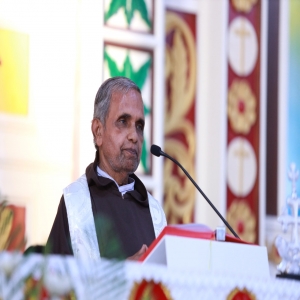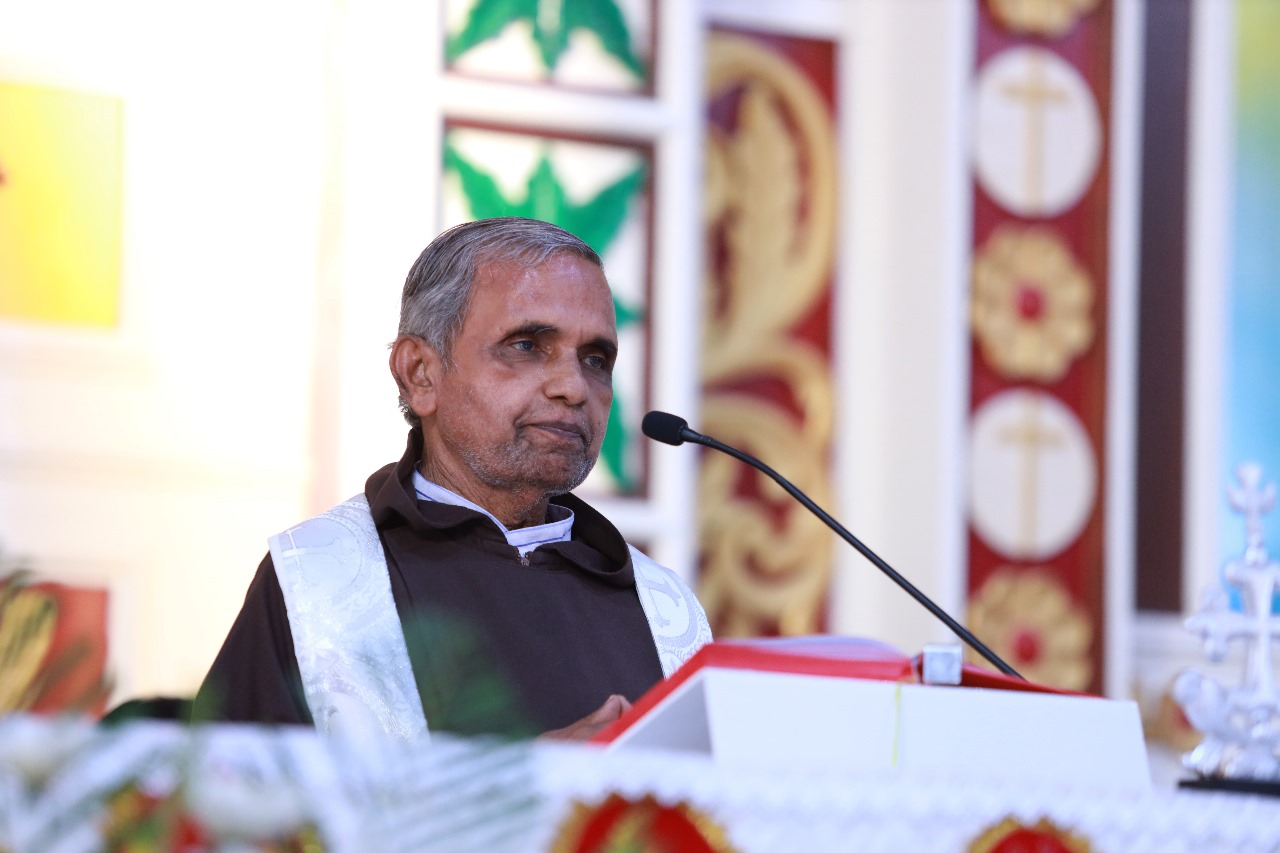

Fr Xavier Vadakkekara (1952–2025) was not just a journalist, a priest, or a publisher. He was a man who lived a life of radical simplicity, deep conviction, and unwavering commitment to the principles of truth, justice, and compassion. His passing leaves a void not just in the Catholic media community but in the lives of those touched by his authenticity and prophetic witness.
Fr Vadakkekara's journalistic career was firmly rooted in what I would call the Prophetic Tradition of Journalism. This is not a term to be used lightly. It implies a fearless and relentless pursuit of truth, a bold and uncompromising stand for justice, and the courage to speak truth to power. To know him was to witness these qualities, not merely in his editorials or public pronouncements but in his daily life.
He began his professional journey with Assisi, a Malayalam-language Catholic magazine. As Managing Editor and later Editor, he transformed it from a conventional religious publication into a journal of bold reflection and fearless advocacy. Though it remained rooted in faith, it also became a platform for rational thought, spiritual introspection, and socio-political engagement. For Fr Vadakkekara, faith was not blind adherence to dogma. It was a living, breathing engagement with the world around him, guided by reason and compassion.
He dared to give voice to the voiceless. He wielded the pen not as a weapon of ideology but as a tool of liberation. The pages of Assisi bore witness to the struggles of the poor, the marginalised, and the oppressed. It was never a mouthpiece of the powerful but a sanctuary for the unheard. He continued this mission even more vigorously when he took charge of Indian Currents, a national English-language weekly brought out by the Capuchin Order from Delhi.
During his long tenure in the National Capital Region, Fr Vadakkekara turned Indian Currents into a platform of prophetic relevance. It was not afraid to critique the establishment or challenge entrenched injustice, even at the cost of inviting censure or resistance. Under his editorial guidance, Indian Currents became a space for honest dialogue, contrarian views, and above all, moral clarity.
Fr Vadakkekara never feared dissent. He welcomed debates and discussions, knowing that dialogue is the lifeblood of a healthy democracy and a mature faith. But while he allowed differing voices to speak, he never wavered in his own convictions. He stood firm when it came to core values: truth, justice, humility, and the dignity of all persons.
His priesthood was not a title; it was a vocation he embodied in its truest sense. As a Franciscan, he took the vows of poverty, chastity, and obedience—and more importantly, he lived them. He did not merely profess these vows; he internalised them. His simplicity, his humility, his detachment from material possessions were evident to anyone who encountered him. His room, his lifestyle, his dress, and his conversation all bore witness to his spiritual discipline.
He believed that sainthood was not confined to the canonised or the clergy. For him, anyone who lived by the principles of Jesus—truth, love, compassion, honesty—was a saint. It did not matter to him what religion, caste, or community they belonged to. That radical inclusiveness defined his worldview. He saw the divine in all human beings and treated everyone with equal dignity. And in doing so, he earned the respect of people across religious and ideological divides.
His life was an open book. There was no duplicity, no façade, no hidden agenda. What he believed, he lived. What he lived, he preached. And what he preached, he practised. That integrity—so rare in public life—made him not just respected but revered.
Fr Vadakkekara also played a formative role in the careers of many writers and journalists. I recall hearing the late Omchery NN Pillai speak about how the persistent encouragement of this gentle priest led him to write well into his 90s. Cartoonist Sudheer Nath credits two of his published books to Fr Vadakkekara's initiative. Senior journalist AJ Philip speaks fondly of how Indian Currents became the forum through which he contributed weekly columns—again, at the insistence of Fr Vadakkekara, who valued thoughtful opinion over popular noise.
He was a mentor in the truest sense—not seeking to control or impose but gently encouraging others to discover their own voice and purpose. He once approached me to write my autobiography after I retired from the Supreme Court. When I expressed hesitation, citing concerns about hurting some contemporaries, he offered to have it written for me. That was his way—never forcing, always guiding. Alas, I could not fulfil his desire as I am still wary of writing my memoirs.
He truly lived a life like the priest in Kumaran Asan's poetic vision in Veena Poov—untouched by worldly distractions, serene in spirit, and resolute in mission. He shared St Francis of Assisi's profound indifference to material comforts. Like the great saint, he believed that being close to God meant shedding all that was superfluous.
He even saw his work in the media not as a career or platform for fame but as a way of glorifying God. Every article, editorial, and book he published was part of his mission to build God's Kingdom on earth—a Kingdom of truth, justice, and love.
It is one thing to admire virtues like humility, truthfulness, and courage. It is quite another to live by them when confronted with opposition, challenges, and threats. Fr Vadakkekara did so with quiet determination. He was never loud, never combative, but always steadfast. And that steadfastness inspired those around him.
I recall seeing him at events—always soft-spoken, often in the background, yet always radiating a sense of purpose. He could strike up a friendship with anyone—because he treated everyone with dignity and sincerity. He had a rare gift: he made people feel seen, heard, and valued. And he never judged.
Fr Vadakkekara may have departed from this world, but he lives on—in the articles he edited, the writers he mentored, the truths he upheld, and the lives he touched. His was a life of praxis—where belief and action walked hand in hand. At a time when the world is increasingly polarised, when truth is often sacrificed for convenience, and when faith is commercialised or politicised, Fr Vadakkekara remained a beacon of what it means to be a true Christian, a true journalist, and a true human being.
As human beings, we can only pray for eternal peace for his soul. But having lived such a virtuous and saintly life, I believe we can even pray to him—to intercede for us, to guide us from above, and to inspire us to live our own lives with the same clarity of purpose and moral courage. May his soul rest in peace, and may his life continue to inspire generations to come!